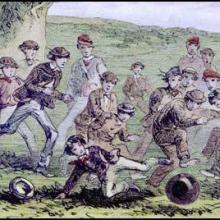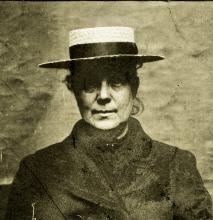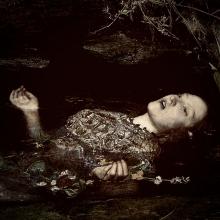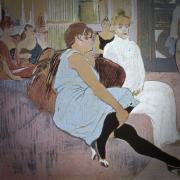
1885
KEEPING A DISORDERLY HOUSE.
At the City Police Court, a woman named Jessie Irvine or Aitchison was ordered to pay a fine of £5, or go 30 days to jail, for keeping a disorderly house and harbouring loose women in Simpson’s Court, Greenside Row, on and since 5th November last.
Edinburgh Evening News, 2 February 1885
[Image: Henry de Toulouse Lautrec – Wikipedia, public domain.]
[1] About £330 today, or 15 days’ wages for a skilled tradesman in 1885.
*****
KEEPING AN IMPROPER HOUSE
At the City Police Court, Alexander Gordon and Margaret M’Gregor or Gordon, his wife, both young persons, were charged with keeping an improper house and harbouring loose women in Queen’s Place, Greenside, on and since the 13th ult. They both pleaded not guilty, but, after evidence had been led, the Bailie found the charge proved, and fined each of the accused £20,[1] with the option of 60 days’ imprisonment.
Edinburgh Evening News, 1 May 1885
[2] About £1,323 today, or 60 days’ wages for a skilled tradesman in 1885.
*****
THEFT OF REINS FROM STABLE.—A young man named Thomas Currie was sent eight months to jail by Sheriff Rutherfurd, at a pleading diet of Edinburgh Sheriff Criminal Court to-day, for stealing a pair of reins by housebreaking, on 11th or 12th May last, from a stable in Circus Lane. Six previous convictions were libelled, and Currie was charged in the indictment with being a habit-and-repute thief.[3]
Edinburgh Evening News, 11 June 1885
[3] A charge under Scottish common law that ‘took into account the temper and disposition of a person, and was an admittance of “bad character”. You could not be charged with being a habit and repute a thief unless you were charged with another offence – excluding murder or assault – at the same time. You could not be found guilty of the former, unless you were found guilty of the latter’ (Nell Darby, Criminal Historian). A habit and repute thief was considered incapable of reform. See also Dictionary of the Scots Language.
*****
AN EDINBURGH DIVORCE CASE.—Lord Lee, in the Court of Session to-day, heard evidence in an action for divorce at the instance of Robert Bagshaw, venetian blind maker, 3 Bell’s Brae, Edinburgh, against Robina Smith, his wife, residing at 13 Hawthornbank, Edinburgh.
Pursuer said he was married to defender in December, 1878, and they had two children, one of whom is now dead. His wife took to drinking and pawning furniture. She sometimes absented herself from home. In June, 1883, she left him altogether.
Evidence was led to the effect that since then defender had led an improper life. Andrew Hardie, who was called as co-defender, admitted having been intimate with defender, and decree of divorce was given, and pursuer was awarded custody of the child. He did not ask expenses.
Edinburgh Evening News, 10 July 1885
*****
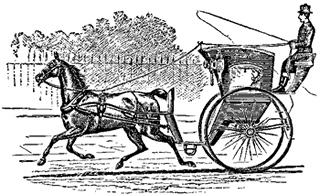
THIS DAY’S POLICE NEWS.
TWENTY-FOUR HOURS’ CRIME.
Twenty-two prisoners were brought up at the City Police Court—Sheriff Rutherfurd presiding. One was charged with theft, one with contravening Section 272 of the Police Act, one with assault, four with loitering and importuning, 12 with disorderly conduct, and three with drunkenness. […]
RECKLESS DRIVING.
A fine of £1, with the option of seven days’ imprisonment, was imposed at the City Police Court upon John M’Queen or Cameron, for driving a horse drawing a cab recklessly or carelessly on 13 inst. in North-West Cumberland Street Lane, in consequence of which a child of two and a half years was thrown down and its right foot injured. Mr Linton said that this occurred about 6 p.m., and that the accused was in liquor at the time. The child was not seriously injured.
Edinburgh Evening News, 22 July 1885
*****
WARNING TO BOYS.
Two youths, named Thomas Sinclair and Alexander Revolta, were charged at the City Police Court with being disorderly on 13th inst. in North-West Cumberland Street Lane, and annoying the inhabitants. They denied the charge.
Two constables said the accused, along with a number of smaller boys, were running about, shouting and swearing. Several of the inhabitants complained about it. The boys had been repeatedly cautioned before.
For the defence it was alleged that there was no noise, that the only shouting was a boy calling out “Red Pol,” in allusion to a red-haired constable (one of the witnesses), who thereupon took the accused’s names.
The Bailie, in finding the charge of disorderly conduct proved against the boys, said this was an offence that was becoming very common in the city, and he thought he was bound to stop it as far possible. Each of the accused would have to pay fine of 5s, and also to find £1 caution[4] for their good behaviour for the next 12 months, or suffer 24 hours’ confinement.
Edinburgh Evening News, 23 July 1885
[4] £1 was equivalent to about £66 today, or 3 days’ wages for a skilled tradesman in 1885.
*****

A QUARREL ABOUT MARY QUEEN OF SCOTS—At Edinburgh Burgh Court to-day—Bailie Anderson presiding—Angus Beaton, a middle-aged man, residing in Simpson’s Court, Greenside Row, was charged with assaulting the wife of a neighbour. He denied it.
It appeared from the evidence that between twelve and one o’clock on Sunday morning last, the woman alleged to have been assaulted, along with some others, was in Beaton’s house. A discussion arose as to the relative merits and demerits of Mary Queen of Scots, John Knox, and Queen Elizabeth.
Like others before them, the disputants were unable to settle the knotty historical point, and quarrelled. Beaton championed the cause of the unfortunate Mary, and was alleged to have put out of his house and afterwards assaulted a woman who spoke disparagingly of the Scottish Queen.
The evidence was very conflicting, and Bailie Anderson found the charge of assault not proven.
Edinburgh Evening News, 7 August 1885
[Image: Wikipedia, public domain.]
*****
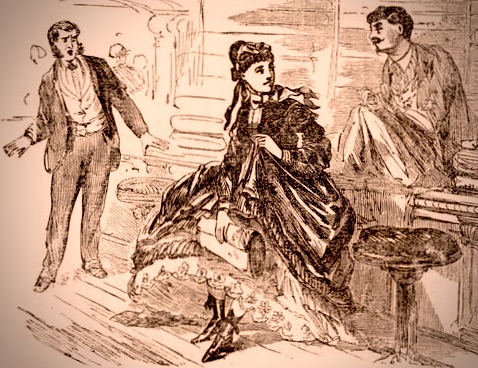
A PROWLING FEMALE THIEF.—In Edinburgh Sheriff Criminal Court this afternoon, a woman named Elizabeth White or Brewster found guilty by a jury of two separate acts of theft.
On the 2d July, prisoner slipped into a house in Circus Lane, the door of which was open, and carried off a shawl and a pair of boots. Repeating the same operation in Abbeyhill a couple of days later, she secured the skirt of a dress.
Sheriff Baxter said she had been very often previously convicted of very serious thefts both in England and in this country, and on this occasion, he would sentence her to imprisonment for 18 months, with hard labour.[5]
Edinburgh Evening News, 3 September 1885
[Image: Wikipedia, creative commons, see below.]
[5] For an account of organised 18–20th-century female crime on an astonishing scale, go here.
*****
THEFT OF HAY.—A respectable-looking young man named Archibald Fairfowl, residing in Clyde Street, was ordered, in Edinburgh Sheriff Criminal Court to-day, by Sheriff Rutherfurd, to obtain caution to the amount of £10[6] for his good behaviour during the next six months, or suffer 20 days’ imprisonment, for having stolen four tons of hay from a stable loft in Dublin Street Lane. Fairfowl was out of hay for his own horse, and helped himself from the premises of a neighbour.
Edinburgh Evening News, 5 November 1885
[6] About £660 today, or 30 days’ wages for a skilled tradesman in 1885.
*****
News from the Mews will resume in 1886 on Thursday.
